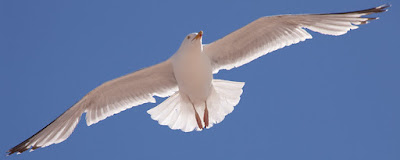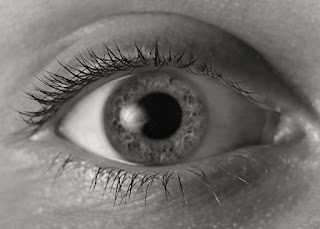Words that are homonyms have the same spelling or pronunciation but different meanings.
SORE and SOAR are homonyms with different spellings but the same pronunciation.
The word SORE functions as both an adjective and a noun.
As an adjective, it can be used to indicate that a part of, or all of, one’s body is painful.
e.g. “Do your eyes ever feel red and sore after swimming in an indoor pool?”
It can also mean upset or angry.
e.g. “Kezia Dugdale says she is ‘sore’ over estrangement from her Moray-based father”
Sore can also mean urgent.
e.g. “Leaded windows, like all other structures have a finite lifetime, and these have served well, but are now in sore need of refurbishment.”
A SORE (noun) is a painful/damaged area of the body.
e.g. “The first sign is often a sore on the skin, usually under their elbow or knee.”
It is also a cause of distress.
e.g. “Brexit reopened those old sores, demanding that people decide whether they were European or British.”
Whether it is used as an adjective or a noun, the word SORE is always a negative term; it is used to describe physical or emotional pain, or to refer to something that needs to be fixed.
The word SOAR functions only as a verb, and it always refers to flying or rising high (literally or figuratively).
One meaning of SOAR is to fly into or remain in the air.
e.g. “For anyone who enjoys wildlife, there can be few sights more uplifting than seeing a golden eagle soaring over a high ridge, or watching a hen harrier quartering a moor, searching for prey.”
SOAR is also used to describe a rapid increase in something.
e.g. “Cauliflower prices have soared and some farmers have suffered financial losses after the destruction of their crops.”
Photo credit: Steve @ Aberdeen (Creative Commons)
I blog about editing, proofreading, and the English language.
Comments and suggestions are welcome.
Many of the phrasal verbs and idioms addressed in this blog were highlighted during an English conversation class I ran a few years ago. I’m grateful to those who attended this for helping me see my native language from a different perspective.
Most of the examples used are quotes from news articles. Click on the links (in yellow) to view the full article.
Sunday, 22 September 2019
Thursday, 19 September 2019
THINGS, DOODAHS AND BITS AND BOBS
Sometimes, we don’t know, or can’t remember, the specific name for something, or there are too many things to list. The English language has several words and phrases that are useful in this situation.
THING – the most commonly used “substitute word”
e.g. “Okra is the most foul thing ever grown.”
DOODAH – another word for something that cannot be named precisely
e.g. “There is just something so precious about a doodah that purifies your personal space, leaving your neighbour in the mire.”
ARTICLE – this word has several meanings, but it is also used to describe things that are unnamed.
e.g. “The Repair Fair resulted in the repair of over 120 items, while the Free & For Sale Frenzy saved over 1,200 articles of clothing from the landfill.”
ITEM – another word with several meanings, one of which is something that is unnamed
e.g. “If the crooks fail to intercept the delivery in the street, they often pose as a courier and try to collect the ‘wrongly delivered’ item from your house.”
STUFF – used to describe material things or activities
e.g. “I have a lot of stuff. It looks like I’m a hoarder, but I’m not.”
Photo credit: KotomiCreations (Creative Commons)
THING – the most commonly used “substitute word”
DOODAH – another word for something that cannot be named precisely
e.g. “There is just something so precious about a doodah that purifies your personal space, leaving your neighbour in the mire.”
ARTICLE – this word has several meanings, but it is also used to describe things that are unnamed.
e.g. “The Repair Fair resulted in the repair of over 120 items, while the Free & For Sale Frenzy saved over 1,200 articles of clothing from the landfill.”
ITEM – another word with several meanings, one of which is something that is unnamed
e.g. “If the crooks fail to intercept the delivery in the street, they often pose as a courier and try to collect the ‘wrongly delivered’ item from your house.”
STUFF – used to describe material things or activities
e.g. “I have a lot of stuff. It looks like I’m a hoarder, but I’m not.”
Photo credit: KotomiCreations (Creative Commons)
Sunday, 15 September 2019
PUT/SET THE CAT AMONG THE PIGEONS
To put/set the cat among the pigeons is to cause trouble by saying or doing something.
Examples:
“What has really set the cat among the pigeons with many residents, though, is the planned extension to the trams.”
“London mayor Sadiq Khan put the cat among the pigeons last week when he called on ministers to allow him to impose rent caps in the capital.”
“His will, however, set the cat among the pigeons.”
This idiom dates back to the early 18th century [1].
Photo credit: Ingrid Taylar (Creative Commons)
[1] Knowles, Elizabeth. “cat” in The Oxford Dictionary of Phrase and Fable. Oxford University Press, 2005.
Examples:
“What has really set the cat among the pigeons with many residents, though, is the planned extension to the trams.”
“London mayor Sadiq Khan put the cat among the pigeons last week when he called on ministers to allow him to impose rent caps in the capital.”
“His will, however, set the cat among the pigeons.”
This idiom dates back to the early 18th century [1].
Photo credit: Ingrid Taylar (Creative Commons)
[1] Knowles, Elizabeth. “cat” in The Oxford Dictionary of Phrase and Fable. Oxford University Press, 2005.
Saturday, 14 September 2019
THE NAKED EYE
Something that can be seen with the naked eye can be seen without a microscope, telescope or other device. (Although most of us have two eyes, we use “eye” in its singular form in this phrase. We would not say “the naked eyes.”)
Examples:
“ALMA is able to observe light that is invisible to the naked eye, allowing astronomers to view what is known as the ‘cold universe’ - those parts of space not visible using optical telescopes.”
“Discovered in 1995 by amateur astronomers Alan Hale in New Mexico and Thomas Bopp in Arizona, the extremely bright comet became visible to the naked eye the following year.”
“Antonie van Leeuwenhoek opened up a whole new world to us; he was the first to observe bacteria and other microscopic lifeforms which could not be seen by the naked eye.”
Photo credit: Manfred Huszar (Creative Commons)
Examples:
“ALMA is able to observe light that is invisible to the naked eye, allowing astronomers to view what is known as the ‘cold universe’ - those parts of space not visible using optical telescopes.”
“Discovered in 1995 by amateur astronomers Alan Hale in New Mexico and Thomas Bopp in Arizona, the extremely bright comet became visible to the naked eye the following year.”
“Antonie van Leeuwenhoek opened up a whole new world to us; he was the first to observe bacteria and other microscopic lifeforms which could not be seen by the naked eye.”
Photo credit: Manfred Huszar (Creative Commons)
Subscribe to:
Comments (Atom)



